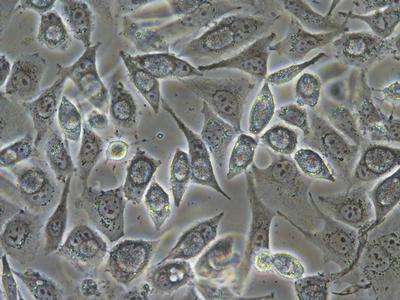Diverse strains of Chlamydia found in student area of Southampton

An area of Southampton known to have a high student population has been found to have more diverse strains of Chlamydia.
Scientists at the University of Southampton reviewed over 3,118 samples given at the main sexual health clinic in the city and analysed genotypes in the DNA of the 380 samples that were tested positive for the sexually transmitted infection (STI).
They found a high number of different genotypes (or strains) in samples given by people from the SO17 (Portswood) postcode. Samples from other postcodes of the city – SO14, 15, 16, 18 and 19 – were all similar and strains that are already known.
Nearly 203,000 cases of Chlamydia were diagnosed in England last year, the majority of these were in young people aged 16 to 24. The infection does not normally give symptoms but can lead to infertility and ectopic pregnancy.
The research team, led by Dr Peter Marsh, honorary visiting research fellow at the University of Southampton and Clinical Scientist, PHE Regional Microbiology Laboratory Southampton, says that being able to identify locations of different strains will help target educational programmes and reduce the number of infections.
Ian Clarke, Professor of Molecular Microbiology and Virology at the University of Southampton and co-investigator on the study, said: “These are really interesting results which could help change the way we target local populations to reduce the rates of sexually transmitted infections. The fact that the SO17 postcode of Southampton has a large proportion of people with diverse nationalities, cultures, and behaviours may account for the differences seen between this and all the other Southampton postcode-defined areas.”
The study, which was originally performed by former PhD student Clare Labiran and is published in PLOS ONE, was carried out in collaboration with Public Health England (PHE) and Solent NHS Trust.
Dr Marsh said: “There are clearly strains of Chlamydia which represent well-established and widespread sexual networks, but there are also sporadic strains implying different sexual networks which might be small and short-lived. These represent introductions of new strains into the community from elsewhere. Whereas interventions to reduce STIs in established and widespread networks should be broad national strategies, such as educational programmes, there should also be targeted surveillance and interventions to identify such short-lived and sporadic networks.”
Clare added: “It was an honour to work on this study - it was my first ever project. I know this vital study will help us to understand the spread of Chlamydia in the community. I am grateful to the University of Southampton and PHE, which is world-leading and an innovative place to perform such research.”
PHE recommends all sexually active under 25-year-olds get screened for Chlamydia every year and on change of sexual partner.
Anyone who thinks they may have a STI should go to their GP or local sexual health or GUM (genitourinary medicine) clinic. Most STIs can be successfully treated, but it’s important to get any symptoms checked as soon as possible.
Solent Sexual Health provides an integrated Sexual Health Service for residents of Southampton which incorporates booked appointments, same day access to clinics, online booking and online Sexual transmitted infection testing service. The service offers free confidential advice and treatment to all. For more information and advice please access our website www.letstalkaboutit.nhs.uk
For more details about Chlamydia visit http://www.nhs.uk/Conditions/chlamydia/Pages/Introduction.aspx